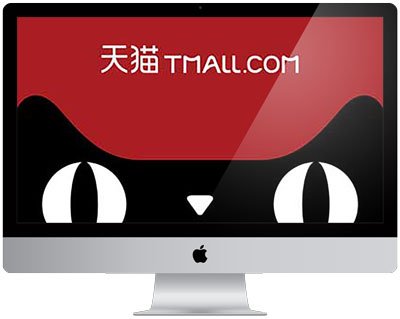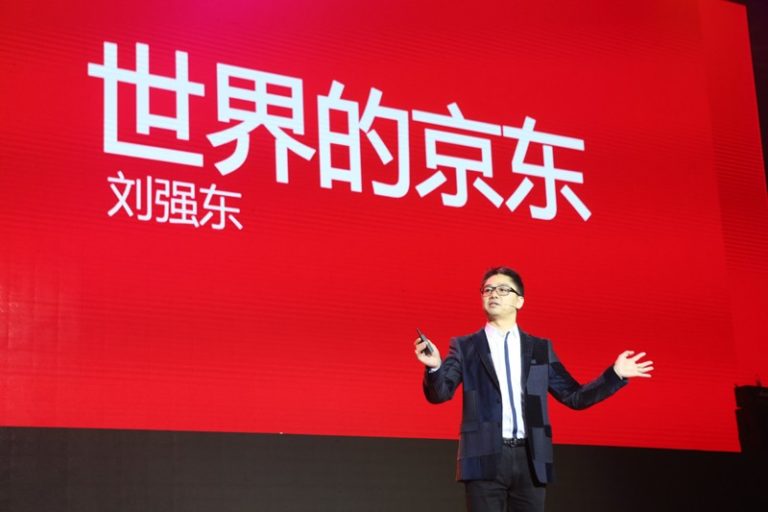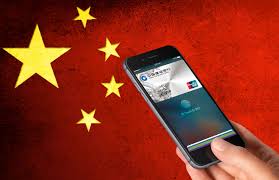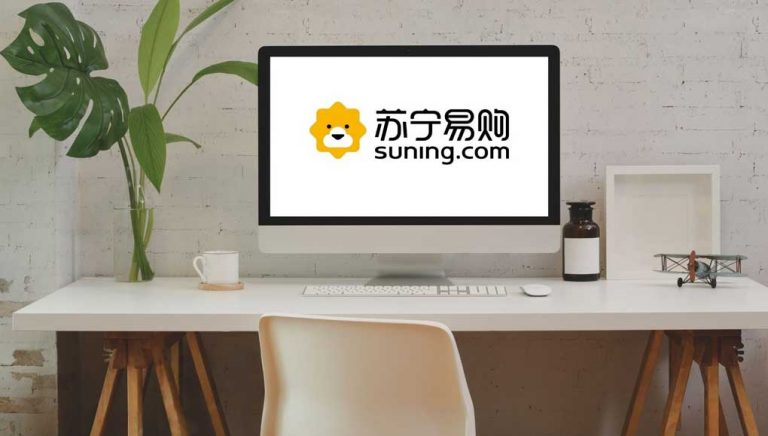How much costs a Tmall store?

The Largest online retail platform in China:
Tmall is the chinese B2C ecommerce platform enabling companies and brands around the world to reach the vast Chinese consumer market. Tmall is considered the leader of the online retail service in China. Brands that currently have stored on Tmall.com Unusual items are now becoming increasingly popular with Chinese buyers, such as luxury imported cars with 400% growth year after year, classic US foods and American cookies, baby formula made outside of China, apparel (Zara, Calvin Klein, Burberry), etc.
Tmall in video
How much does it costs to operate a Tmall Store?
The costs of Tmall can be divided into three categories:
Cost-Effective Agency
KPI and Results focused. We are the most visible Marketing Agency for China. Not because of huge spending but because of our SMART Strategies. Let us help you with: E-Commerce, Search Engine Optimization, Advertising, Weibo, WeChat, WeChat Store & PR.
Tmall Deposit:
Reimbursed when the store is closed. The deposit varies depending on the type of seller between 10,000 RMB and 300,000 RMB.
- Flagship Store & Franchise Store: ™100,000RMB ® 50,000RMB
- Specialty Store: ™ 150,000RMB; ®: 100,000RMB
- Specialty Categories:
- Flagship Store of a multi-brand marketplace – 150,000RMB
- Specialty stores (Goods not produced in Mainland China and not trademark in China (Fruit, import products, etc) – 150,000RMB
- Book/Audiovisual: Flagship store and franchise store – 50,000RMB; Specialty store – 100,000RMB
- Service and E-tickets: 10,000RMB
- Online Gaming and QQ, “Mobile Fees”, and “Travel” primary category operators – 10,000RMB
- Medicine/Medical Service primary category merchants – 300,000RMB
- Cars and Car accessories and others 1st class such as New and Used Cars – 100,000RMB
Tmall Annual Service Fees:
Payable annually, these fees also vary depending on the type of product (between 30,000 RMB and 60,000 RMB). To encourage salespeople to increase their sales, Tmall reimburses half of the entire annual service fee if vendors meet Tmall’s predefined sales targets for each product category.
Tmall Commission fees:
For each sale transaction, Tmall reserves a commission fee which varies between 0.5% and 5%.
More info about Tmall Fees Structure
For Tmall Global, it is specific.
This is a table that contains all the information cited above in detail:

We are a Digital Marketing Agency specializing in Chinese B2B/B2C e-marketing as well as a certified Tmall Partner Contact us if you need solutions to enter the market.
WE CAN HELP YOU, FEEL FREE TO CONTACT US
According to eMarketer 85% of Chinese online purchases are made on digital marketplaces.
Alibaba’s Tmall is the leader in China’s online retail marketplace race. It owns a 57% share all retail ecommerce transactions. Alibaba’s annual gross merchandise value (GMV), of more than $430 billion is higher than all 10 U.S. online markets combined. Alibaba’s reach extends to payments, television and digital media. However, the core retail businesses of Tmall Global, Tmall Global, and Taobao are its core business. Tmall is the local marketplace. Tmall Global sells international brands. Taobao is an ecommerce site that connects consumers to their favorite retailers. These marketplaces combine to process an incredible number of transactions. Tmall had close to 493 millions monthly active users in 2016.
Tmall Global offers a growing opportunity to foreign retailers who want to enter China’s ecommerce market. Tmall Global has sold more than 14,500 brands from abroad, with over 80 percent of these companies selling on the site for their first time in 2016. Tmall Global sells brands from 63 countries, with the United States and Japan leading the pack.
Tmall Global Sellers Who Are Successful
Tmall’s most active segment is female shoppers. However, the new buyer segment tends to be dominated by males and young shoppers, especially those between 16 and 28 years old. Tmall Global shoppers are most likely to look for products in two categories, regardless of their demographics.
Fashion – Despite China’s limited exposure, big-name fashion brands from North America or Europe continue to have a lot of influence in China. Tmall Global shoppers love to shop handbags, luggage, and women’s shoes and apparel on this site.
Personal care -Chinese buyers are increasingly turning to cross-border markets to purchase beauty products, cosmetics and non-perishable nutritional supplement. News headlines are key to this: Over the past few years, a series of health concerns over the quality and safety of domestic products has encouraged many buyers towards foreign brands.
Keys to Selling at Tmall Global
It is important to consider cultural factors before any brand opens a shop on Tmall Global.
- China’s domestic marketplaces are much more popular than those in North America or Europe. With 85 percent of all online sales occurring through Chinese marketplaces, these are the place for Chinese consumers to shop. Use a marketplace-first strategy. It shouldn’t be a secondary priority for a direct-retail website.
- Selling in China requires localization. This doesn’t mean translating your website copy or marketing materials. It also means understanding the unique cultural nuances of China. Many retailers have simple websites with minimal text, large-format imagery, and whitespace. This is similar to minimalism in Western cultures. Digital storefronts in China are similar to supermarket flyers. They have as much information as possible and emphasize bold type and illustration.
- The Chinese shopper is used to buying cross-border. The Global Ecommerce Report, which is due out soon, found that 74% Chinese online shoppers have made cross-border purchases. Chinese buyers have had many reasons to cross-border buys in the past. The most recent was the quality of their domestic personal health products. The supply of foreign retailers has simply not been sufficient to meet the demand of Chinese shoppers.
- Iterative marketing requires an understanding of China’s shopping culture. China is home to a variety of shopping holidays, which are quite different from Western promotional calendars. For instance, Singles’ Day (11/11) is the largest shopping day in the entire world. It saw more than $17.6 million sold within a 24-hour span last year. To create momentum in sales, marketers should design unique promotions for each holiday. They can also use celebrities and the concept product scarcity to help them.
- Chinese customers expect high levels of interaction and engagement. Customers in China love online chat and Tmall Global’s merchant ratings as well as shopper reviews. These are displayed prominently on each storefront. The rating trends of retailers are also tracked by shoppers (e.g. Is this retailer getting better or worse ratings? Expect to have constant conversations with merchants.
These five factors are why foreign retailers must have a local team in order to sell into China. Tmall Global’s network of Trusted Partners (TPs) is required to get on board. These TPs are system integrators or third-party consultants. While TPs are vital, many are based in China and are focused on operational needs. Many retailers face challenges with contracting, technology platforms and logistics, as well as marketing and storefront optimization. Pitney Bowes Complete Marketplace takes the responsibility of managing your customer service, contractual, logistical, marketing, and logistics. This will allow you to be more efficient in China.
Choosing the right Trusted Partner in China is critical to your success.
China’s ecommerce Agency partner Top skills
- Team Capabilities*
- Ecommerce experiences
- Leadership and Strategy
- Advertising skills
- Analytics
- Specialist that operate stores
- Copywriting, Content creation
- Merchandising + Customer Service
- SEO, Social Media management localize to China
- Execution & Management communication
- Design of the store
- Optimisation of the Tmall
- Logistics and Fulfilment
- Strategy, Marketing campaigns, pricing and Promotion strategies. T
- Business campaigns Off of the platforms
- Livestreaming is essential to maximize your potential.
- Tmall direct sales & event management
- Understanding the larger ecosystem
- Campaigns can be used offline and online.
- Online engagement
- your longer-term profitable growth.
Questions of western brands : what’s the difference between Taobao & Tmall?
Alibaba Group owns both Taobao and Tmall, which are online commerce platforms. Taobao was initially an e-commerce platform for C2C. Although you can find many items on the platform, the service provided is not uniform due to the variety of merchants. B2C ecommerce platforms, such as 360buy (also known under JD.com), emerged in response to the ecommerce trend. Their smooth shopping experience combined with high-quality products, self-operated logistics and a seamless shopping experience is what set them apart. Tmall was spun off of Taobao to offer high-quality services. In April 2008, it was introduced at Taobao Mall. It launched its own web domain in November 2010. Tmall and Taobao have two key differences: Taobao sells both C2C as well as B2C products, while Tmall focuses exclusively on B2C. Tmall distinguishes its merchant listings from Taobao’s C2C merchants by listing them as either brand owners or authorized distributers. This eliminates the possibility of products with poor quality or unsatisfying shopping experiences.
Tmall Partner & Flagship stores, does my brand need this?
Flagship strategy Tmall sellers must provide all documentations necessary to verify reliability and existence of the company, brand, or manufacturer.
Sellers must place a greater number of guaranteed deposits on Tmall that on Taobao.
Decent services Tmall sellers can be supported by Taobao merchants such as quality infrastructure, logistics and customer service to ensure a smooth shopping experience.
Operational Regulations: Tmall Sellers are required to guarantee, for example, the “Seven Days No Reason to Return”, even though it is not available by default on Taobao
Tmall and Taobao were merged into the Alibaba Group in June 2011. Tmall provided premium customer support and merchant support following the separation of the two platforms. This was necessary to Taobao “respond to competitive threats that have emerged in an e-commerce landscape that has dramatically changed”.
Mobile First in China
The mobile internet has made PC ecommerce more accessible. Taobao always had a greater user base that Tmall. Taobao has both Taobao stores and Tmall shops. This allows Taobao to leverage its platform advantage. All Tmall listings can also be found in Taobao’s APP. The back-end operations were still separated by Tmall and Taobao.
Tmall and Taobao are the top players in the huge Chinese e-commerce marketplace
China’s e-commerce market continues to grow, being identified as the largest market since 2013. An e-commerce report by China’s Ministry of Commerce shows that national online retail sales reached 11.76 billion yuan in 2020. This is an increase of 10.9% compared to the previous year.






How to open tmall global store /tmall flagship store ? Are you a TP tmall Partner ?
How work tmall advertising ? tmall global fees /tmall fulfillment
Please contact us SOfian, we will give you all information that you Need.
seo@marketingtochina.com
Hello,
I represent China Jiaxiang Group Ltd a Chinese Importer in Guangzhou and we want to partnership with foreign food and beverage brands with exclusive agreement for the sale and distribution on Tmall.
You can contact me on WeChat and leave your message on WeChat